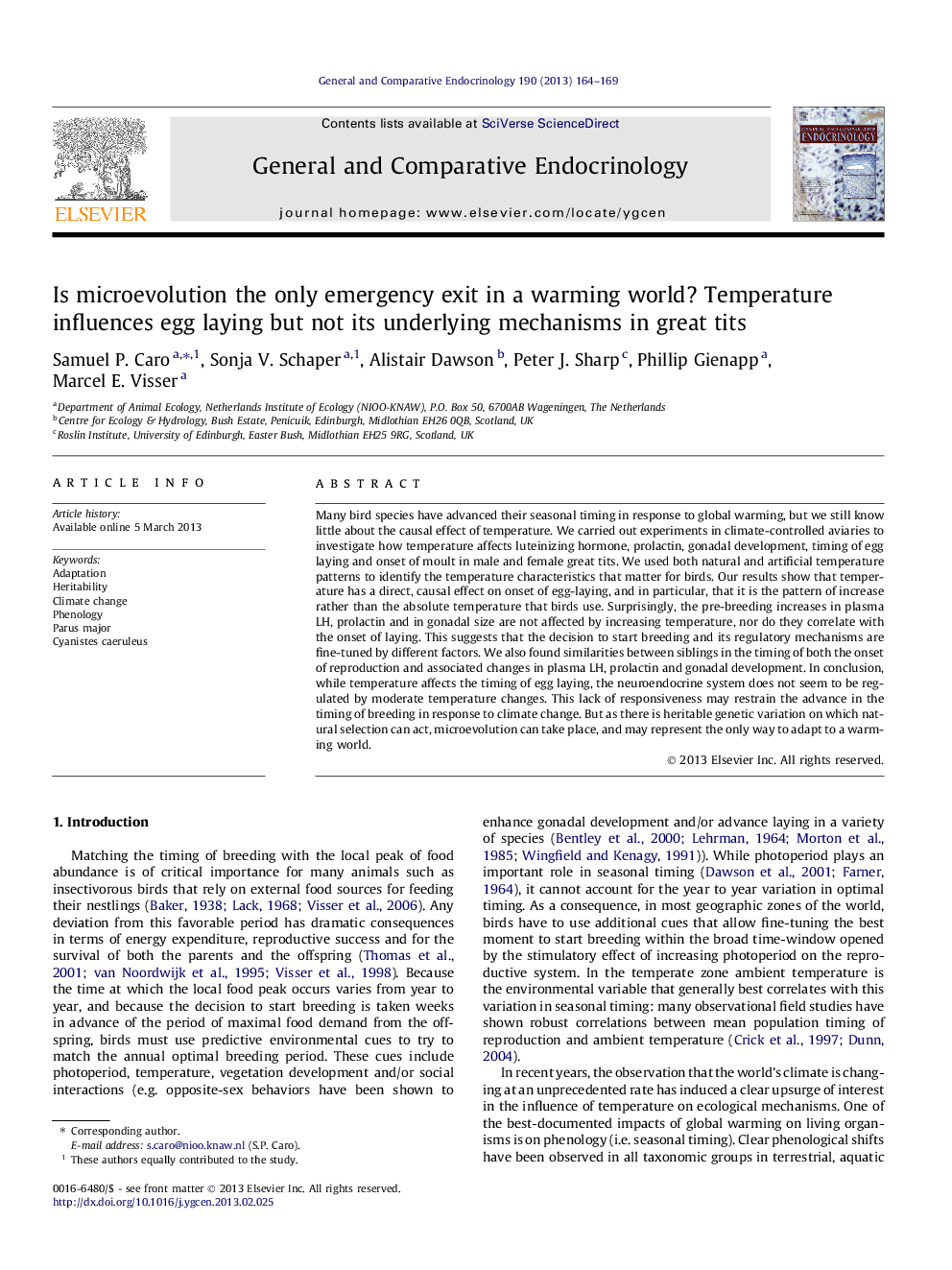| Article ID | Journal | Published Year | Pages | File Type |
|---|---|---|---|---|
| 2800351 | General and Comparative Endocrinology | 2013 | 6 Pages |
Many bird species have advanced their seasonal timing in response to global warming, but we still know little about the causal effect of temperature. We carried out experiments in climate-controlled aviaries to investigate how temperature affects luteinizing hormone, prolactin, gonadal development, timing of egg laying and onset of moult in male and female great tits. We used both natural and artificial temperature patterns to identify the temperature characteristics that matter for birds. Our results show that temperature has a direct, causal effect on onset of egg-laying, and in particular, that it is the pattern of increase rather than the absolute temperature that birds use. Surprisingly, the pre-breeding increases in plasma LH, prolactin and in gonadal size are not affected by increasing temperature, nor do they correlate with the onset of laying. This suggests that the decision to start breeding and its regulatory mechanisms are fine-tuned by different factors. We also found similarities between siblings in the timing of both the onset of reproduction and associated changes in plasma LH, prolactin and gonadal development. In conclusion, while temperature affects the timing of egg laying, the neuroendocrine system does not seem to be regulated by moderate temperature changes. This lack of responsiveness may restrain the advance in the timing of breeding in response to climate change. But as there is heritable genetic variation on which natural selection can act, microevolution can take place, and may represent the only way to adapt to a warming world.
► Temperature has a direct, causal, effect on timing of breeding in great tits. ► Temperature does however not influence the neuro-endocrine mechanisms underlying timing. ► This lack of responsiveness might constrain the adaptation to global warming. ► There is heritable genetic variation in timing of breeding and the underlying mechanisms. ► Microevolution might thus be the only way to adapt to a warming climate.
